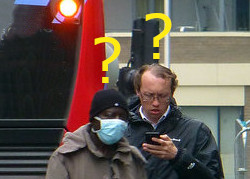Understanding COVID-19
Covid is airborne. It is in the exhaled breath of infected people. Vaccines and treatments are your last lines of defense. Post-infection immunity shortened to 28 days. 1 in 3 infected people are pre-symptomaticor show no symptoms. Long Covid usually comes from reinfections, most often mild infections. There is no limit to how many times you can catch Covid-19. The AMA wants people to know that getting reinfected is akin to playing Russian Roulette. Rapid tests can miss asymptomatic infections.
Covid-19 is not just a respiratory infection
It is a multi-organ, systemic disease; a serious vascular, neurological, immune-system-damaging, eye-damaging, brain-damaging, randomly disabling (and disability-worsening) disease (CDC: 1 in 5; PHAC: 50%).
Any infection creates risk for serious heart problems; the risk of deadly blood clots is elevated for one year. Covid can leave pets with brain damageand long-term harms.
Each reinfection does cumulative, worsening damageand leads to Long Covid; typical onset is 4 weeks after infection. There is no treatment, cure, or prevention for Long Covid. Anyone of any age or health status can get Long Covid. Here is what Long Covid looks like.
The above is from Violet Blue's COVID Newsletter, "Threat Model" which I encourage you to subscribe to.
Beyond Respiratory Infection
Covid-19 is not just a respiratory infection. It is a multi-organ, systemic disease affecting:
- Vascular system
- Neurological function
- Immune system
- Vision
- Brain function
CDC reports that 1 in 5 experience long-term effects, while PHAC indicates up to 50% of patients report symptoms after 12 weeks.
Long-term Impact
Each reinfection causes cumulative damage. Long COVID typically appears 4 weeks after infection, with no current treatment or cure available.
Anyone, regardless of age or health status, can develop Long COVID. Here is what Long Covid looks like.
Content adapted from Violet Blue's COVID Newsletter, "Threat Model"
